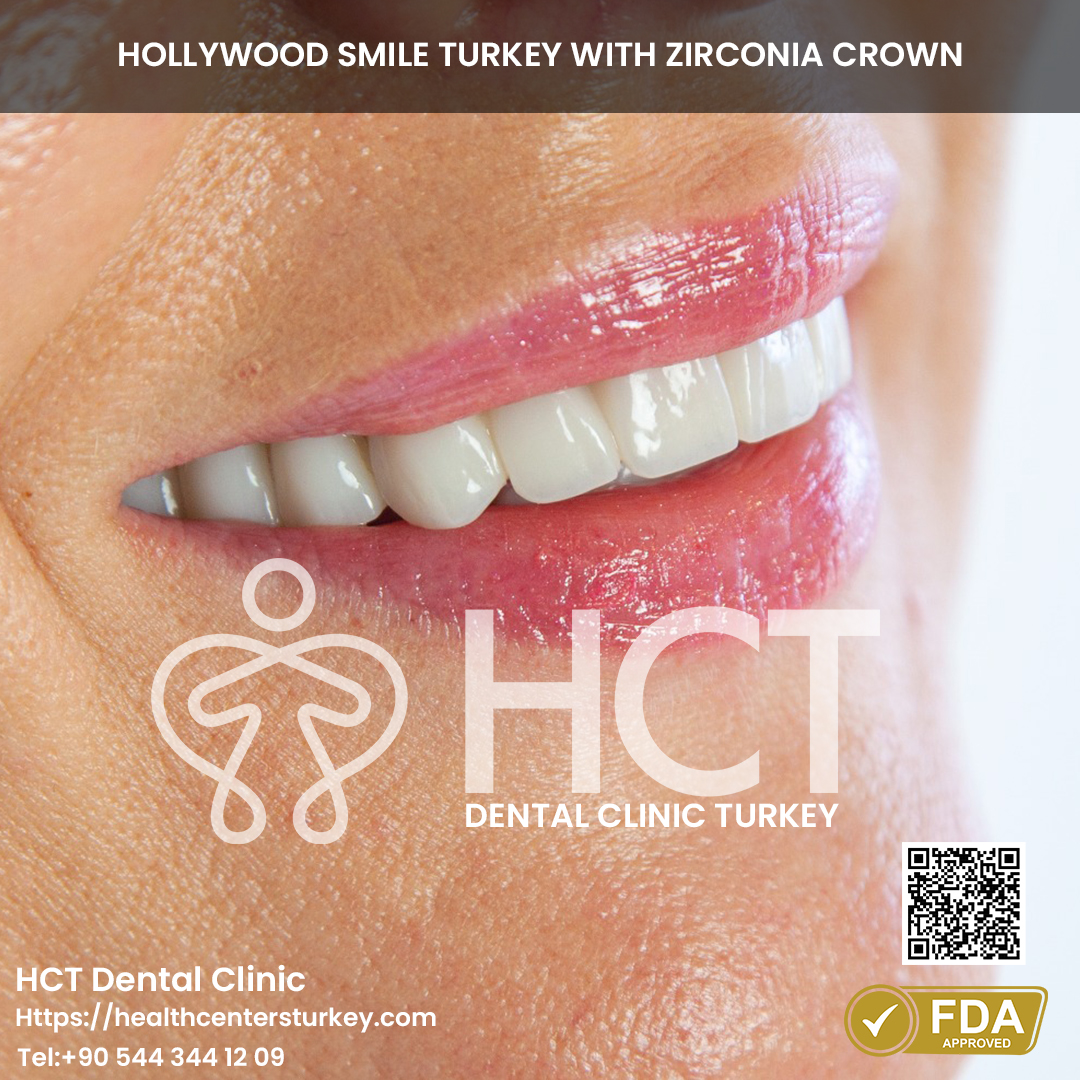Outstanding Dental Clinics Available to International Patients in Turkey
Holistic Oral Health Solutions for Perfect Smiles
Dental implants have become a well-liked solution for those seeking to replace missing teeth. Understanding how these implants can affect adjacent teeth is crucial for anybody considering this procedure, as nicely as for dentists and specialists involved in dental care.

One vital aspect is that dental implants are designed to be anchored into the jawbone, which implies they're independent of adjacent teeth. Unlike dental bridges, which regularly require the alteration of neighboring teeth, implants can fill the hole without compromising the health or structure of these surrounding teeth.
This independence helps keep the integrity of adjacent teeth. When a tooth is lost, there can be a natural tendency for neighboring teeth to tilt or shift into the empty area. Such movement can result in misalignment, which can affect chew and total oral health. By putting an implant, you effectively prevent this potential shift, selling better alignment in the long run.
Highly Rated Dental Treatments for International Patients in Turkey
Additionally, dental implants assist maintain bone density within the jaw. A natural tooth root provides stimulation to the encircling bone, keeping it healthy and powerful. When a tooth is missing, the bone can start to deteriorate due to lack of stimulation. With a dental implant mimicking a natural root, bone loss can be minimized, which not directly benefits adjacent teeth by preserving the general structure of the dental arch.
While dental implants are advantageous, improper placement can impact neighboring teeth. If an implant is positioned too shut to another tooth, it might exert undue pressure on that tooth, resulting in discomfort or potential damage. Proper planning and imaging methods are important for avoiding such issues.
Explore Budget-Friendly Dental Treatments in Turkey
Moreover, sustaining good oral hygiene is crucial after receiving an implant. If not correctly cleaned, surrounding teeth may turn out to be susceptible to dental issues corresponding to decay or gum disease. This underscores the importance of diligent oral care following the procedure to make sure both implants and adjacent teeth remain wholesome.
Regular dental check-ups are also very important for monitoring the health of surrounding teeth. Dentists can establish any shifts or potential problems early, permitting for well timed interventions. This proactive approach ensures that each the implant and adjacent teeth can coexist with out issues.
Save Big on Implants in Turkey
Another consideration is the impression of implants on bite pressure. When a single tooth is missing, the load of chewing could shift to adjacent teeth, potentially leading to put on or strain. Implants restore proper chew dynamics by redistributing forces within the mouth, which can shield surrounding teeth from undue stress.
Some sufferers could raise considerations concerning the appearance of dental implants. Well-placed implants can mix seamlessly with existing teeth, improving general aesthetics. In distinction, failing to switch a missing tooth can lead to aesthetic issues, together with collapsing of facial structure and adjustments in smile dynamics.
It's additionally worth discussing the psychological elements of dental health. Experiencing tooth loss can adversely affect one’s vanity and willingness to have interaction socially. By restoring your smile with implants, you possibly can positively influence not only your find out oral health but in addition your emotional well-being.
Long-term success of dental implants usually hinges on varied components, including the patient's health, maintenance habits, and the quality of the initial procedure. If adjacent teeth are healthy and properly cared for, the likelihood is that they will continue to thrive alongside the implants.
Elevating Care Standards in Turkish Dental Clinics
In conclusion, dental implants play a crucial position in not simply restoring individual smiles, however in preserving the health and structure of adjacent teeth. By stopping shifting, maintaining bone density, and redistributing bite forces, implants can ensure that surrounding teeth stay in optimal condition. Proper placement, hygiene, and regular dental visits can further enhance the benefits of dental implants, leading to a healthier, more confident smile for years to return.
- Dental implants might help keep the alignment of adjacent teeth by providing a steady anchor, stopping adjacent teeth from shifting into the hole left by a missing tooth.
- The presence of an implant could stimulate bone progress within the jaw, serving to to protect the general structure and integrity of the adjacent teeth.
- Unlike traditional bridges, implants do not require alteration of surrounding teeth, thus preserving their strength and anatomy.
- Implants can enhance the distribution of bite forces evenly across the dental arch, reducing the stress on neighboring teeth during chewing.
- A well-integrated dental implant can lower the chance of bone loss within the space surrounding adjacent teeth, contributing to their long-term health and stability.
- The aesthetics of adjacent teeth could be improved because of the help offered by implants, which may lead to higher total beauty outcomes.
- With proper placement, dental implants can prevent gum recession around adjacent teeth by sustaining sufficient dental structure.
- Implants might help mitigate the risks of periodontal disease in nearby teeth by selling wholesome gum tissue and providing a cleanable floor.
- Long-term success of dental implants can result in improved oral hygiene routines, which in turn benefits the health of surrounding teeth.
- The improved functional ability of an implant can encourage sufferers to chew more effectively, thus increasing saliva manufacturing and aiding within the protection of adjacent dental tissues.undefinedHow do dental implants affect adjacent teeth?
What are dental implants and the way do they interact with adjacent teeth?undefinedDental implants are artificial tooth roots which would possibly be surgically positioned into the jawbone. They provide a stable basis for replacement teeth while ensuring minimal disruption to adjacent teeth, preserving their integrity and alignment. Innovative Techniques in Dental Implants in Turkey.
Get Ready for Your Smile Makeover in Turkey
Can dental implants trigger problems for nearby natural teeth?undefinedGenerally, dental implants do not hurt adjacent natural teeth. However, if the implant isn't placed accurately or if there’s insufficient oral hygiene, it might lead to complications corresponding to adjacent tooth decay or gum disease.

Will getting a dental implant change the way my adjacent teeth feel?undefinedMost sufferers report no change within the sensation of see this adjacent teeth after implant placement. However, it could take a while to regulate to the presence of the implant, just like how one might adapt to other dental restorations.
Can dental implants help preserve the health of adjacent teeth?undefinedYes, dental implants may help preserve the health of adjacent teeth by stopping bone loss that can occur after tooth loss. This preservation supports the alignment of close by teeth, lowering the chance of shifting or misalignment.
Explore Cost-Effective Dental Treatments in Turkey
Do I need to modify adjacent teeth when getting an implant?undefinedTypically, adjacent teeth don't want alteration when inserting an implant. This is doubtless one of the advantages of dental implants over conventional bridges, which regularly require reshaping adjacent teeth for help.
How does the healing process of an implant have an result on close by teeth?undefinedThe healing process entails osseointegration, the place the implant fuses with the jawbone. During this time, adjacent teeth remain unaffected and retain their function, although it’s important to comply with post-operative care recommendations. Comprehensive Guide to Dental Implants and Cosmetic Treatments in Turkey.
Tailored Dental Solutions for Clients Seeking Care in Turkey
Can dental implants lead to bone loss round adjacent teeth?undefinedIf dental implants are placed properly and cared for adequately, they want to not lead to bone loss around adjacent teeth. In truth, they might help stimulate bone growth, combating the natural bone loss that always follows tooth extraction.
What precautions should I take to guard adjacent teeth after getting an implant?undefinedRoutine dental hygiene, including brushing and flossing, together with common dental check-ups, is crucial. Avoiding exhausting foods and following your dentist’s aftercare directions may also defend both the implant and adjacent teeth.
Is it common for adjacent teeth to shift after an implant is placed?undefinedIt's not typical for adjacent teeth to shift after an implant placement, particularly when the implant is placed appropriately and maintained properly. If there’s any motion, it may be as a outcome of other underlying points that should be evaluated by a dental skilled.